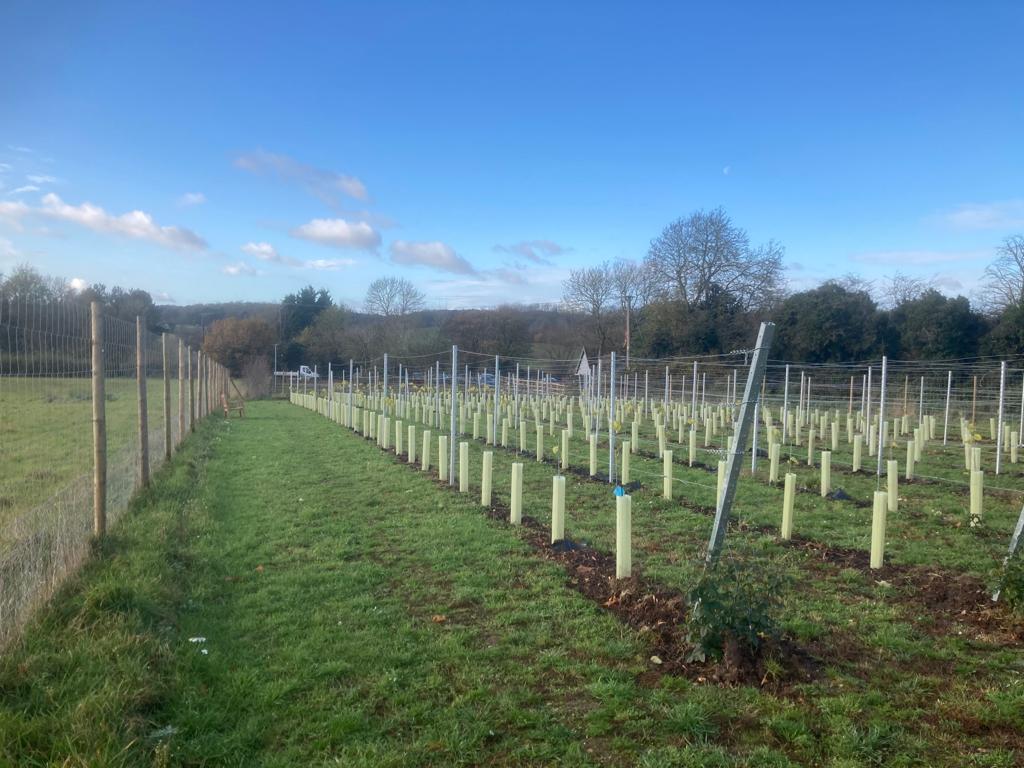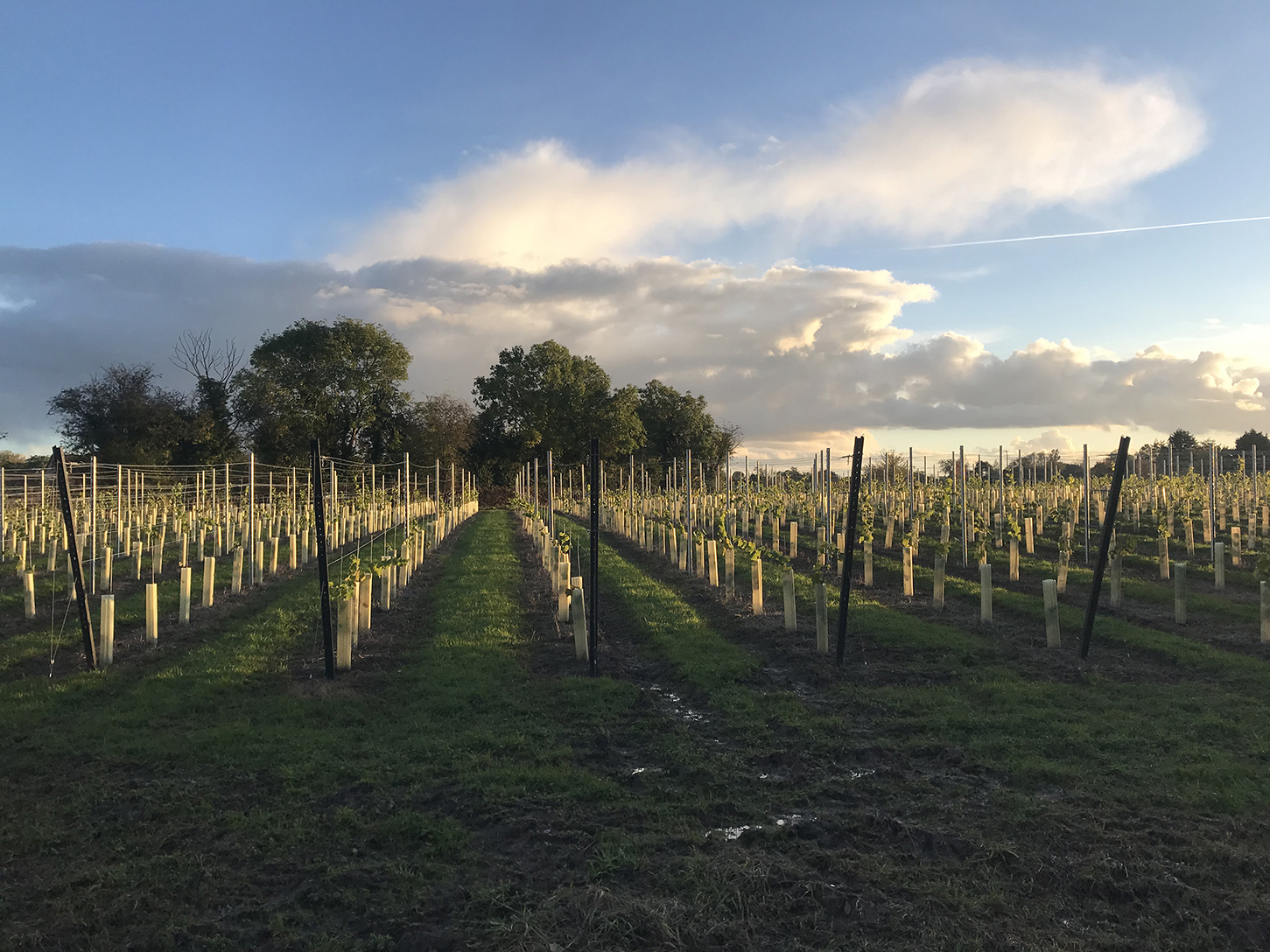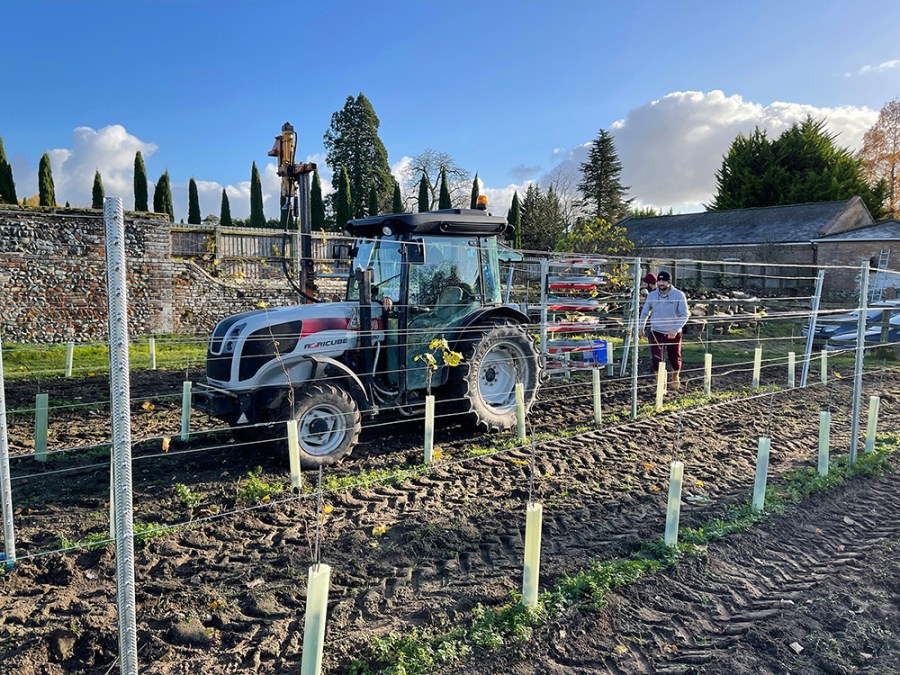We are all very used to hearing the great stories of planting hundreds of thousands of vines and producing millions of bottles of wine each year, but little is heard from the more modest end of our industry. Over the last few years Vine-Works has seen a significant increase in the desire to establish smaller scale projects from people who wish to take a piece of the English wine dream into their homes.
Ranging from a few hundred to a few thousand vines each, these vineyards’ sizes don’t always match their owners’ ambitions. Michael Rhodes at Thurston Place Vineyard, Suffolk runs a successful contract winemaking operation for other local vineyards on top of managing his recently expanded vineyard with his wife, Irene. Michael told us that although he and Irene found their award-winning contract winemaking service immensely enjoyable and satisfying, they have desired to have a vineyard of their own for some time. They now plan to take the next big step and open a cellar door to receive customers to their site next year.
The challenges of establishing a site of this size are often very different from a commercially scaled project. Finding a local contractor able to complete the required ground preparation can prove difficult and access for machinery and material deliveries is rarely simple. All this on top of learning a whole new set of skills and knowledge is no mean feat. However, the growers we spoke to are all delighted with their decision; finding great reward in watching their vines develop and tasting the finished wine at the end of the year.
David King from Five Oaks Vineyard, Hertfordshire has found that keeping on top of the weeds is one of his largest challenges – something that UK vine growers of any scale will surely sympathise with! Keeping your newly planted vineyard free of weeds is extremely important for a successful establishment. Weeds are often able to out-compete vines for nutrients, and if allowed to grow vigorously can trap moisture and humidity – creating potential disease threats.
Site selection and vineyard design is another challenge that small and large growers alike face. Ensuring the right place for your vineyard is possibly the most important decision to make. However, Jeremy Macklin from Marlbank Farm Vineyard, Worcestershire knew from his 17 years’ experience working with vine growers in France that he had a great site when he saw it. His concern came from a potential frost risk, for which he sought help from a local agronomist. Together they came up with a plan to help the cold air drain away down to a stream that runs off the Malvern Hills, carrying it safely out of the way. Working with an expert to design and plan your vineyard will help to protect yourself from any potential risks. Many producers of this size are choosing to plant varieties (PIWI/FRG) with more inherent resistance to the disease threats we receive in the UK. By doing so, their projects are better protected from challenging years such as 2021 and the management of their vines becomes simpler – significantly reducing the need to use pesticide sprays. This allows for time to be focused in other areas of the vineyard, to help ensure a quality crop is produced in an increasingly more sustainable way. The primary goal of these producers, like any good vigneron, is to craft the best possible wine and many are developing close relationships with contract winemakers to ensure this.
Vine-Works sees a very healthy future for vineyards of these sizes. As the industry grows and develops, there are more and more opportunities for people to enjoy the world of grape growing in the UK. There are now several options for contract winemaking services tailoring themselves to smaller volumes. Plumpton College offers fantastic viticulture and winemaking courses to teach you the fundamental knowledge to help your project succeed. Should you wish to investigate the possibility of establishing your own vineyard, consult with a professional who will be able to assist you through every stage.
Key considerations when establishing a vineyard
Know your site
It is important to pair your ambitions with the realities of the site.
Preparation, preparation, preparation
The earlier and better your site is prepared, the greater the success of your planting.
Timing
Running a vineyard takes time – even at a modest scale. Familiarise yourself with the tasks involved and plan accordingly.

David King – Five Oaks





